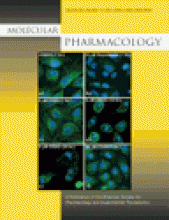Abstract
The constitutive active receptor (CAR) in mouse primary hepatocytes undergoes okadaic acid (OA)-sensitive nuclear translocation after activation by xenobiotics such as phenobarbital (PB) and 1,4 bis[2-(3,5-dichloropyridyloxy)]benzene (TCPOBOP). We have now mimicked this TCPOBOP-dependent and OA-sensitive translocation of mouse CAR (mCAR) in HepG2 cells and have demonstrated that protein phosphatase 2A regulates this nuclear translocation. Site-directed mutagenesis analysis of various Ser and Thr residues delineated the translocation activity to Ser-202. Mutation of Ser-202 to Asp (S202D) prevented mCAR translocation into the nucleus of TCPOBOP-treated HepG2 cells. In addition, in the livers of Car-/- mice, the YFP-tagged S202D mutant did not translocate into the nucleus after PB treatment. To examine whether Ser-202 can be phosphorylated, flag-tagged wild-type mCAR or flag-tagged S202A mutant was expressed in HepG2 cells and subjected to Western blot analysis using an antibody specific to a peptide containing phospho-Ser-202. A high molecular weight phosphorylated form of CAR was detected only with the wild-type mCAR. These results are consistent with the conclusion that the dephosphorylation of Ser-202 is a required step that regulates the xenobiotic-dependent nuclear translocation of mCAR.
- Received October 4, 2005.
- Accepted December 23, 2005.
- The American Society for Pharmacology and Experimental Therapeutics
MolPharm articles become freely available 12 months after publication, and remain freely available for 5 years.Non-open access articles that fall outside this five year window are available only to institutional subscribers and current ASPET members, or through the article purchase feature at the bottom of the page.
|






